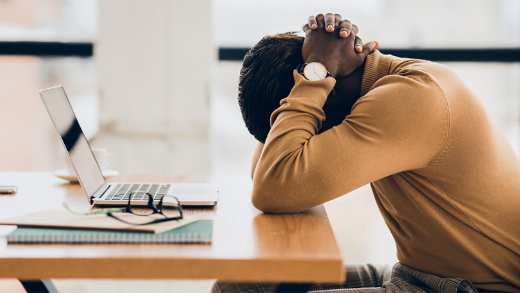
Taking care of people is our business
We want our clients' employees to feel good. We do this by helping those employees improve their physical, financial and mental wellbeing. With a number of tools and services to help them, we hope to improve their wellbeing and build workforce resilience. We believe this will lead to a stronger, more successful organisation as a whole.
Engaged workforce
Wellbeing initiatives that are tailored to employees' needs can make a positive difference to their work attitude. We use a number of ways to help deliver wellbeing messages in the most relevant and timely way for your workforce.
Workforce resilience
Successful wellbeing initiatives can build happier, healthier, more financially confident individuals. This can lead to a more resilient workforce, either better at dealing with issues or able to recover from them more quickly. As the workforce becomes more resilient the organisation's performance will also improve.
Employer of choice
Talented people looking for their next career move are far more aware of the importance of wellbeing than before – it's something they will look for in a new employer. Being able to offer a fully integrated wellbeing approach can only add to your employer appeal.
What we offer
Take a look at some of the wellbeing support we offer our clients' employees.
Financial Wellbeing
We believe financial wellbeing is about helping employees feel in control of their finances, both now and into the future.
We can support your employees, whatever the state of their financial health. We have budgeting tools, video guides and top tips for many financial scenarios. Our MidLife MOT, MyPension and Aviva Financial Advice team can all support employees who want to develop a medium term plan for a comfortable retirement.
Physical Wellbeing
The physical wellbeing services could help you create a happier, healthier and more productive workforce, while working to reduce absenteeism, presenteeism and the associated costs.
Mental Wellbeing
The mental wellbeing services could help you build a mentally resilient workforce, offering proactive and reactive 3rd party solutions that work together to help you deliver a rounded mental health strategy.
Wellbeing services

Wellbeing Services – Health
Wellbeing services could help you create a happier, healthier and more mentally resilient workforce, offering proactive and reactive solutions which work together to help you execute a rounded wellbeing strategy. Ultimately with the aim of giving you a more productive workforce, while working to reduce absenteeism, presenteeism and the associated costs.

Wellbeing Services – Group Protection
With Aviva Group Protection, your employees get access to expert clinical help when they need it. Alongside that and the financial support it offers, your employees get a rounded suite of wellbeing services to help them make informed, balanced and positive lifestyle choices. And if the going gets tough, we also offer access to support services to help them cope with stress and grief.

Financial advice for your team
Aviva Financial Advice can help employee pensions and investments work harder by building a personalised financial plan using products from Aviva and other carefully selected investment partners. The first meeting is free.
Why choose us

Investing in wellbeing
We know that employee wellbeing is crucial to a company's success – the guides, tools and services available are all designed help you support your employees.

Building business resilience
We have a range of products and services to help you prevent and manage risk for both your business and your workforce. In delivering a cohesive and comprehensive wellbeing programme we can help you build a more resilient business.
Wellbeing insights
Wellbeing webinars
Learn more about health and wellbeing in the workplace with interactive sessions run by experts. Watch live or watch later via our webinar library.
Neurodiversity
Resources are available to help you understand neurodiversity, support your employees, and create an inclusive workplace for all.
Menopause
The menopause is something that affects lots of people in the workplace. Our guides, articles, and webinars can empower you and your employees to approach it with confidence.
Working Lives Report
The latest Working Lives Report investigates employer and employee attitudes to the workplace, finances, wellbeing, and planning for retirement.
Our tools

Pension calculator
Answer a few simple questions on our pension calculator and find out how much your pension could be worth.

Shape my future
This useful tool helps give you an idea of whether your potential retirement income will fund the lifestyle you want.
Workplace wellbeing articles:
Explore more wellbeing support with our articles

Six ways employers can tackle burnout
As employees and employers find their balance in ever shifting working patterns, burnout may be a reality for some. Recognising and easing the pressures can build a healthier workforce.

How to spot if your employees are burning out
Aviva’s Dr Doug Wright looks at how to spot the signs of burn-out and what you and your employees can do to prevent it.

Menopause is a business issue: what can employers do to help?
Medical Director Dr Subashini M, Aviva UK Health, discusses ways to support employees experiencing menopause and help them stay in work.

How to help when someone is not okay
What do you do if someone tells you they are not okay? It’s not easy to know what to say, but we have some tips to help you.
